-
Hair Care
- Tips
-
Our values
Our Botanical Soul
- Our plants
- The Mag
- Diagnosis

Having beautiful hair starts with a healthy scalp. And nature has everything you need to pamper it!
The scalp is the skin on your head. It needs the same care as the skin on your face or body, and it has its own specific needs. A healthy scalp is required for shiny and healthy-looking hair. If your scalp lacks vitality and shows signs of fatigue, it can have a strong impact on your hair.
The skin that covers the surface of your head has many functions: first and foremost, it’s where the hair follicles draw their energy (and oxygen) from to create hair. It also acts as a protective barrier against aggressors (heat or cold, for example). The hydrolipidic film on the surface of the scalp prevents dryness, fights bacteria and strengthens hair. A real superhero for your scalp!
The scalp also regulates body temperature, helping to maintain the ideal temperature of 37°C (by producing or evaporating heat, it’s your body’s heating and cooling system). And it does so for 600 to 700 cm2 of skin, that is is alive and sensitive. Therefore, we need to care for our scalps so they can continue to carry out their important role.
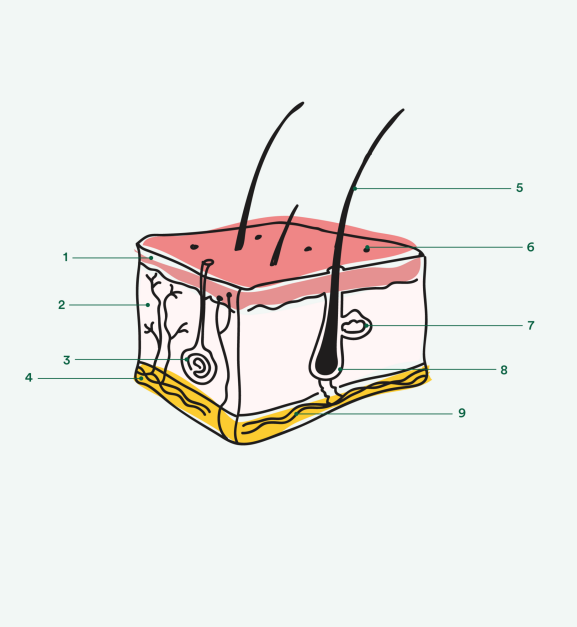 1. Epidermis 2. Dermis 3. Hypodermis 4. Adipose tissue 5. Hair 6. Pore 7. Sweat gland 8. Hair follicle 9. Blood vessels
1. Epidermis 2. Dermis 3. Hypodermis 4. Adipose tissue 5. Hair 6. Pore 7. Sweat gland 8. Hair follicle 9. Blood vessels
Like the rest of your skin, the scalp needs care and attention. Incorporate scalp care into your haircare routine!
The first step is to massage your scalp as it promotes micro-circulation, i.e. It helps blood flow to the hair’s capillary roots and to supply it with nutrients and oxygen. This is essential to grow strong, healthy hair that’s full of vitality. Aim to spend 5 extra minutes in the shower to carry out this relaxing process.
Brushing your hair daily also helps get rid of the impurities that build up during the day. And as an extra step, you can use an exfoliating scrub to gently cleanse the scalp.
In short, moisturising is just as important on the scalp as it is for the skin on your face or body. Consider regularly applying treatments or masks that are formulated for your scalp's needs to rebalance the sebum or maintain it.
The scalp can become damaged and show signs of fatigue. Why?
Hormonal imbalance is one of the main factors that can affect the essential role of the sebaceous glands in the scalp. This phenomenon slows down micro-circulation and therefore the supply of nutrients and oxygen that reach the hair.
Pollution and the accumulation of toxins can weaken the scalp too, causing hair to look dull, weak and tired.
Using products that are too harsh such as overly detergent shampoos can cause irritation.
Repeated heat styling, excessive heat or brushing your hair too often or aggressively are a few examples of why scalp damage is likely to happen.
You have to wash it every 2 days, your roots lack volume and sometimes your head itches or you get dandruff.
See our tips
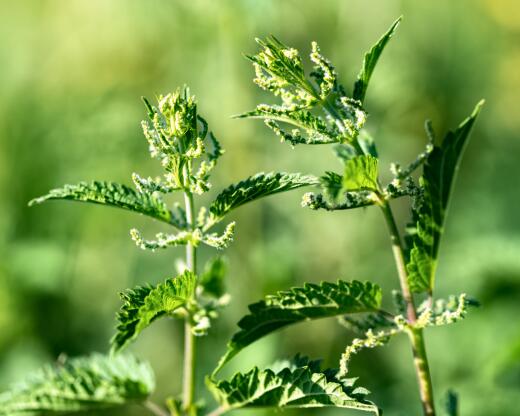

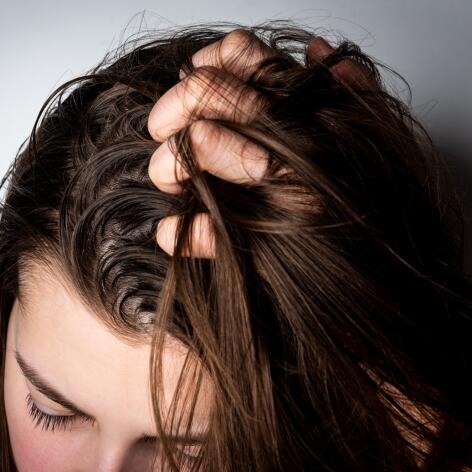
Sebum is essential for protecting hair but if it is produced in excess, it covers the scalp causing it to become greasy, in turn giving your hair an oily appearance. At best you get flat hair, and at worst an itchy scalp and dandruff. By determining the cause of the sebum imbalance we can find natural and effective solutions – this also means you won’t have to wash your hair as often any more!
You experience itching, tingling and redness
See our tips

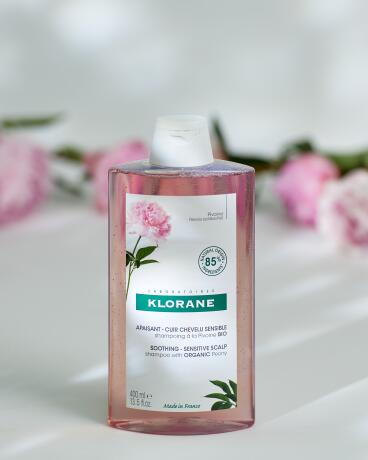
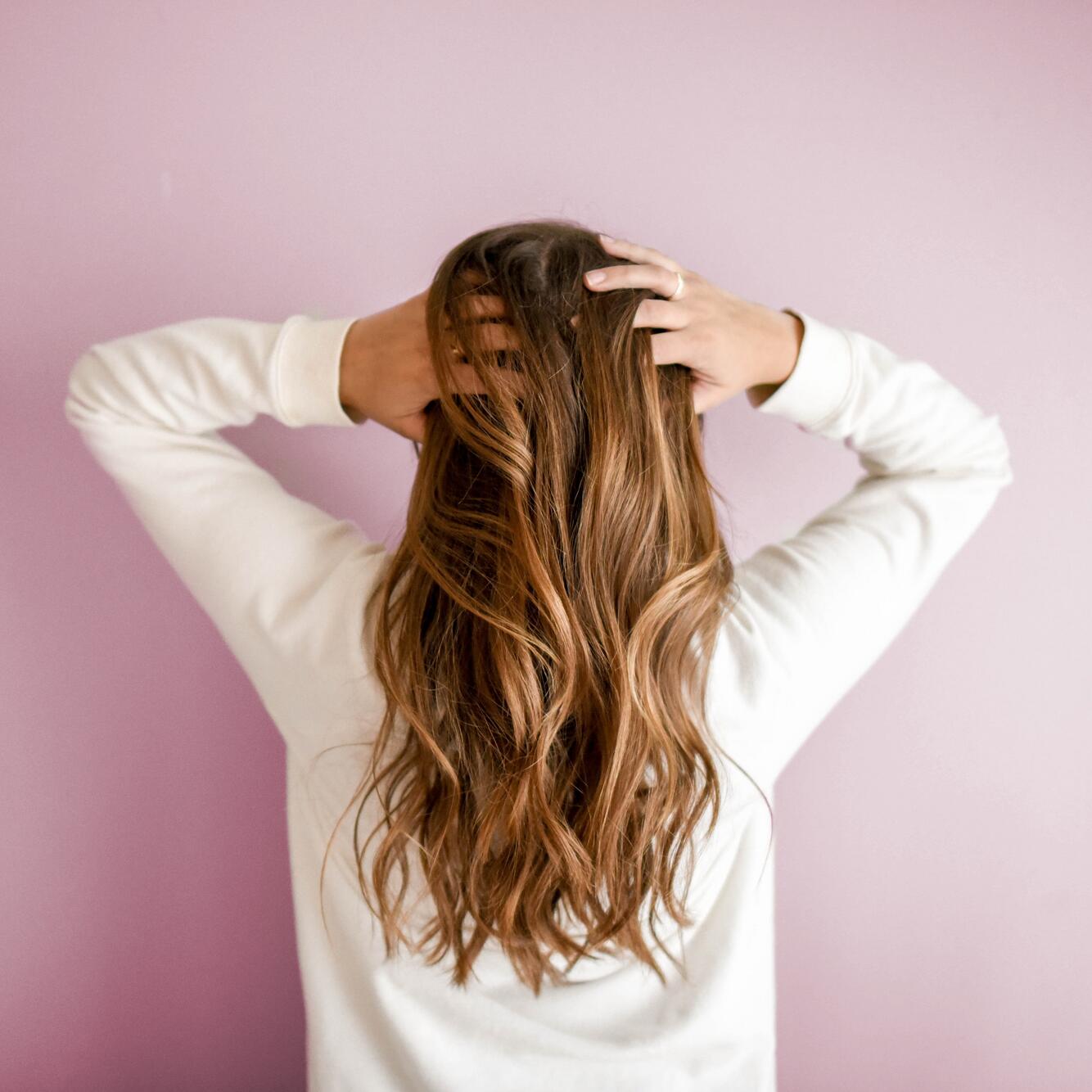
Tightness, painful roots, itching... like the skin of the face or body, the scalp is sometimes sensitive and becomes uncomfortable. In addition to itching, dandruff (dry dandruff) may occur when the scalp flora changes under the effect of the numerous aggressive agents it faces on a daily basis (pollution or stress to name to name but a few).
You have flaky skin, itching and feel embarrassed in public.
See our natural tips

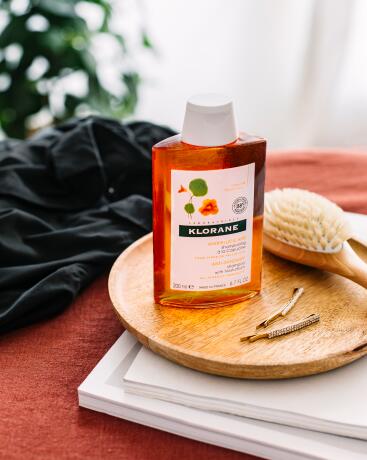
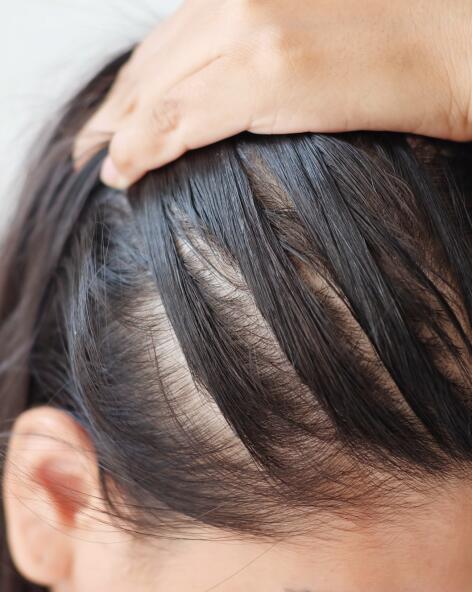
There are two types of dandruff depending on what affects your scalp: dry (when there is irritation) or oily (when there is excess sebum). The first kind look like small white snowflakes that are first attached to the scalp and then embarrassingly end up covering your shoulders and clothes. Whereas oily dandruff flakes are larger, don’t get on your clothes but are visible on the surface.
Your hair lacks shine, volume and easily becomes greasy.
See our tips
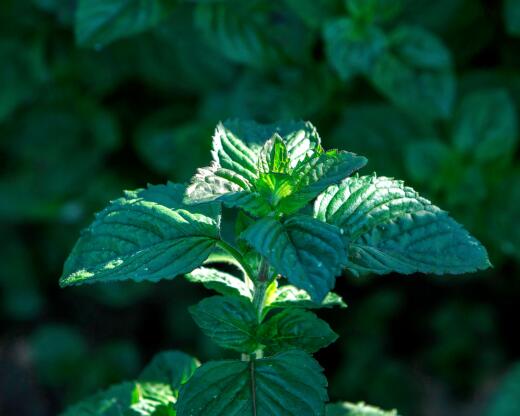
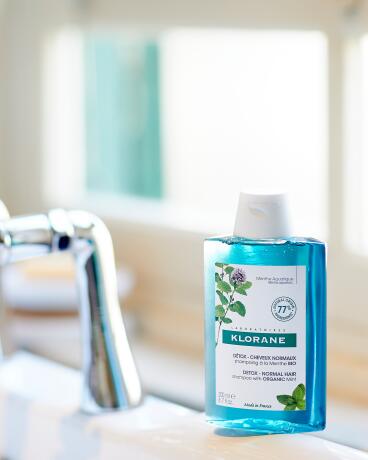

Pollution has a strong impact on the health of your hair and scalp on a daily basis. It suffocates it, preventing it from protecting and nourishing the hair causing it to weaken or even worse, fall out! Therefore, the scalp will sometimes need a detox to be able to recharge itself and remain strong.
Our experts and botanists answer your questions.
Nope. Just like there are different hair types or different types of skin, there are also different scalp types. Your scalp type depends on your genes, your age, where you live and your lifestyle. Once you know what type of scalp you have, it's easy to find the care it needs.
Contrary to what you might think, excessively washing your hair isn’t a good option and it will actually make it become greasy faster. Hair becomes oily because the scalp produces too much sebum, not because it's dirty, and washing hair too often leads to increased sebum production. In order to break this vicious circle, you should try washing your hair less – once or twice a week maximum to regulate excess sebum. Between washes consider using a dry shampoo!
To some extent, yes. Anything that covers your head for a long period of time “suffocates” the scalp, in turn it can become dry out and/or react by producing more sebum that also makes it difficult for the scalp to breathe. The scalp can become uncomfortable and itchy, and hair loses its strength. Moreover, repeated friction caused by a hat can also weaken and irritate the scalp. So if you tend to wear a hat, remember to regularly cleanse your scalp with a natural product adapted to your needs.
No, you might already know this from first-hand experience. Although hair acts as a first barrier (a little like lashes for the eyes), it is in no way a shield against UV rays responsible for sunburn. It’s difficult to apply sunscreen to your scalp so consider wearing a hat during prolonged sun exposure.